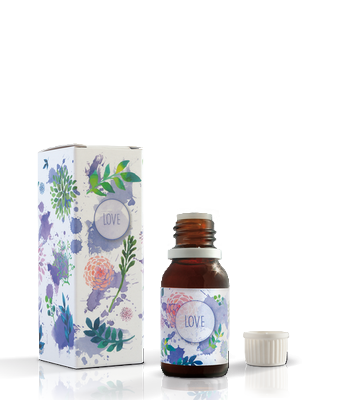Painful sex – Definition, Symptoms and Treatment
Painful intercourse, portrayed restoratively as dyspareunia, is not extraordinary. An expected 20 to 50 percent of ladies experience some type of sexual brokenness, including pain amid sex.
“The expression “dyspareunia” implies pain amid sex, and it covers a colossal classification of symptoms, with a tremendous scope of conceivable causes,” says Edwin Huang, MD, a gynecologist at Massachusetts General Hospital in Boston. Those causes usually go from, effectively cured issues, for example, unfavorably susceptible responses or diseases, to more mind boggling, mental issues.
Indications of Sexual Pain
For ladies, the symptoms of dyspareunia incorporate pain in the vagina amid sexual movement, either at the passage of the vagina or further inside. A few ladies experience vaginismus, which implies that their vaginal muscles automatically contract amid penetration, making the experience painful. Dr. Huang says that a few ladies with vaginismus have pain amid sex, as well as feel pain amid routine gynecological exams.
Causes and Treatment of Sexual Pain
Since there are such a large number of conceivable reasons for dyspareunia and vaginismus, Huang says, it is hard to speak for the most part about treatment choices. Be that as it may, he says, “finding the wellspring of the issues is more than a large portion of the fight.” Huang says the initial step for a specialist in treating dyspareunia is to order an intensive and complete restorative and sexual history of the patient, to distinguish conceivable causes. These could include:
Unfavorably susceptible responses. The skin in the vagina can be bothered in the event that you have an unfavorably susceptible responses to a cleanser, cleanser, a douche item, or perfumed tampons or maxi cushions. Switch to unscented items with less fixings on the off chance that you think hypersensitivities might be included Huang does not suggest douching in light of the fact that it can aggravate the skin in the vagina.
Vaginal tingling. Yeast contaminations, urinary tract diseases (UTIs), and some sexual transmitted ailments cause tingling and smoldering sensations in the vagina. Having intercourse while you are experiencing one of these conditions can be upsetting and can bring about dyspareunia. UTIs and yeast contaminations are treatable, and most sexually transmitted ailments can be dealt with or oversaw.
Vaginal dryness. Upwards of 20 percent of ladies report lubrication challenges, which can prompt pain amid sex. The hormonal changes that go with menopause can likewise prompt vaginal dryness. Huang says that utilizing water-based oils and participating in more foreplay before sexual intercourse can help with vaginal dryness.
Vaginismus. The automatic constriction of vaginal muscles amid penetration, or vaginismus, can be brought about by physical and mental elements, Huang says. Distinguishing the reason for vaginismus is fundamental for building up a treatment arrangement.
Different Causes of Sexual Pain
In spite of the fact that dyspareunia is frequently brought about by effectively treatable conditions, here and there it can be an indication of more major issues.
Wellbeing conditions. Here and there, dyspareunia is an indication of other wellbeing conditions, including hemorrhoids or endometriosis, a condition in which the tissue that lines the uterus begins developing in different spots in the body. These conditions are treatable.
Mental causes. Mental components, for example, nervousness and gloom, can unfavorably influence sexuality and bring on dyspareunia. Ladies who have been sexually mishandled may find that their relationship to sex has changed drastically. A sex advisor or guide can help you address these root mental causes and work with you to develop a sound and positive sexuality.
Main concern on sexual pain: Recognize your symptoms and look for counsel. On the off chance that you encounter pain amid intercourse, converse with your gynecologist. Sexual pain does not need to be a piece of your life.
Research
In the fifth version of the Diagnostic and Statistical Manual of Mental Disorders (DSM-5), vaginismus, dyspareunia and incited vulvodynia are arranged together under the more extensive term of genito-pelvic pain/penetration issue (GPPD).[11] GPPD is characterized as:
- Persistent or repetitive challenges in vaginal penetration amid intercourse; or
- Marked vulvovaginal or pelvic pain amid intercourse or penetration endeavors; or
- Marked trepidation of or uneasiness about vulvovaginal or pelvic pain in suspicion of or amid or as an aftereffect of penetration; or
- Marked straining or fixing of the pelvic floor muscles amid endeavored penetration.
Examinations
- Appropriate swabs and transport media are required for gonorrhea, chlamydia and different STIs.
- Dipstick pee and/or send a midstream example of pee to check for UTI.
- Investigation of the gastrointestinal or urinary tract will be founded on history and examination.
- Laparoscopy might be valuable if endometriosis or grips are associated as the source with pain
Likewise with erectile brokenness, where suitable, the issue ought to be drawn nearer by the couple as opposed to only the person.
General measures
Treatment ought to be coordinated at the fundamental cause, where proper.
- Research in this field is frequently of low quality yet it gives the idea that mental medicines are as compelling as therapeutic medications, free of the reason for the pain.[11]
- A multidisciplinary approach, which incorporates psychosexual solution, physiotherapy, clinical brain science and pain administration groups, might be required.
- Modification of sexual method and changing position may diminish pain with intercourse. Expanding the measure of foreplay and deferring penetration until maximal excitement will increment vaginal lubrication and lessening pain with insertion.
- Women might be worried that their vagina is too little to permit section of a penis. In light of sexual excitement, the vagina increments long by around 35-40% and extends in width at the upper end by around 6 cm.
Spanish Fly Love
Consider taking Spanish Fly love, since it increases natural lubrication and revitalizes the sexual organ which allows foreign objects much less resistance upon entry and much more pleasure to you rather than pain. Spanish Fly Love is all-natural and organic when means you won’t have to worry about any short or long term issues and thanks to its quick acting formula you will start noticing the incredible in results in a matter of minutes.


